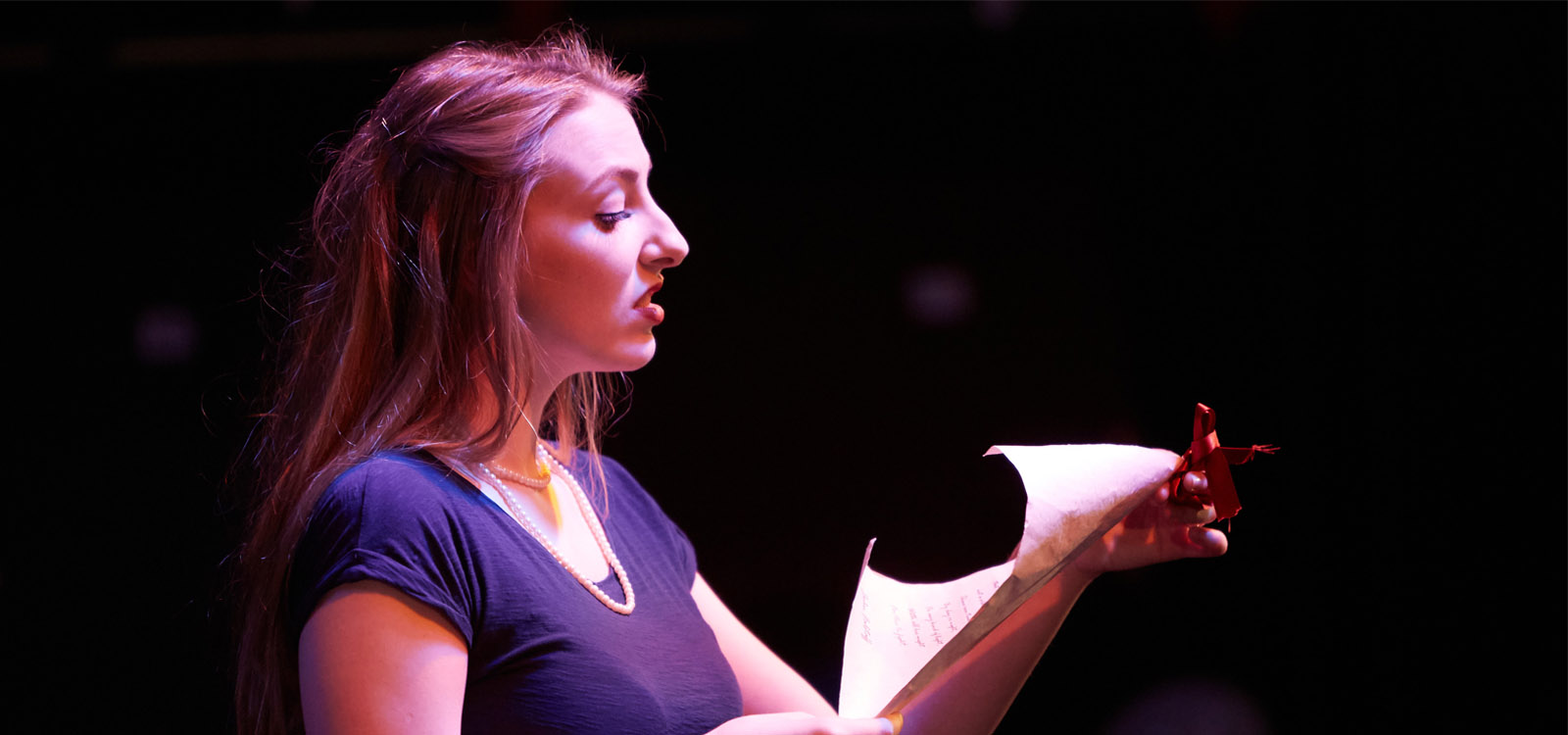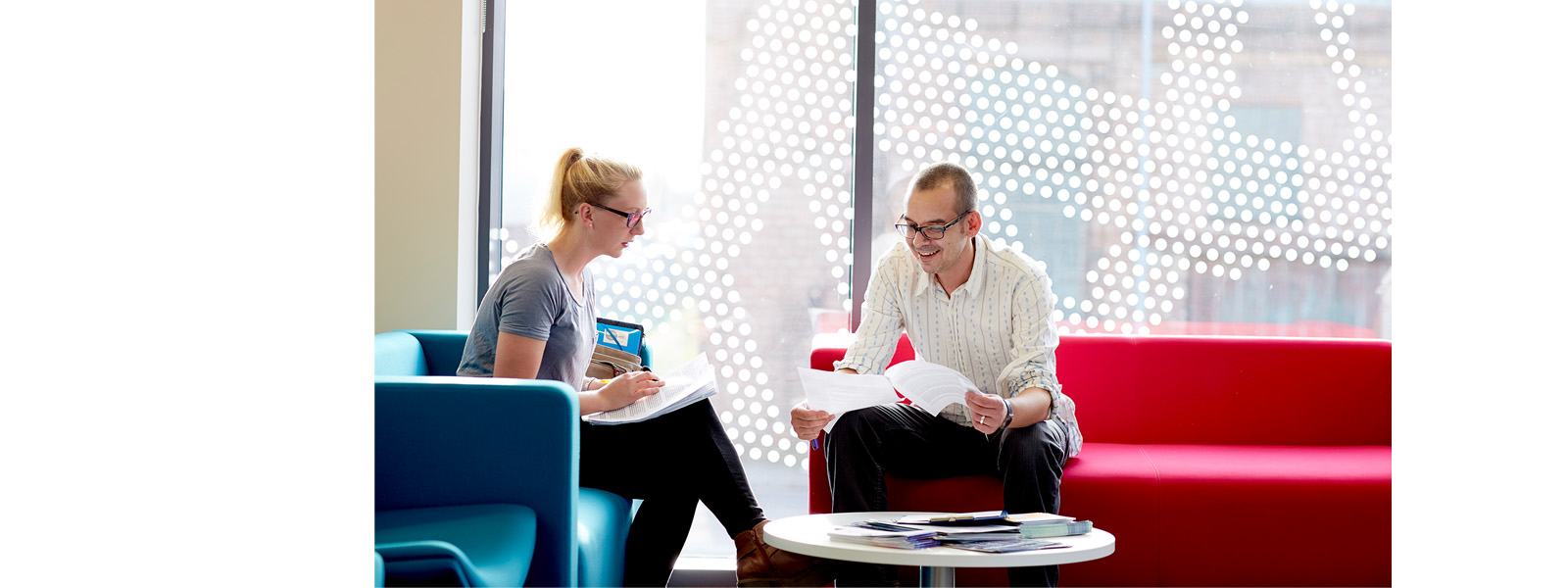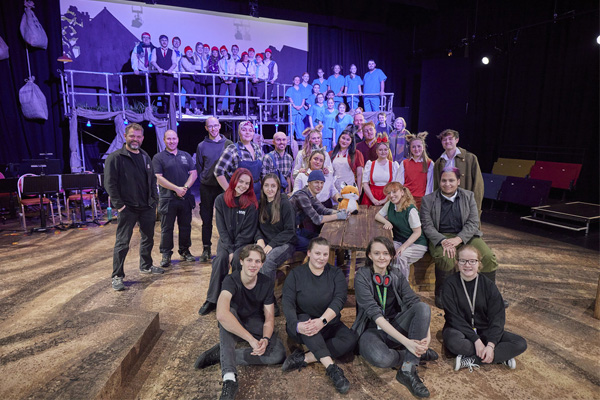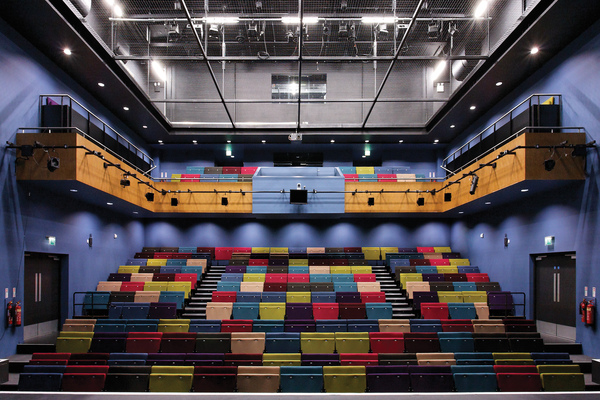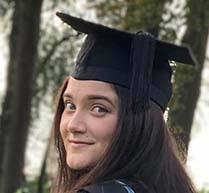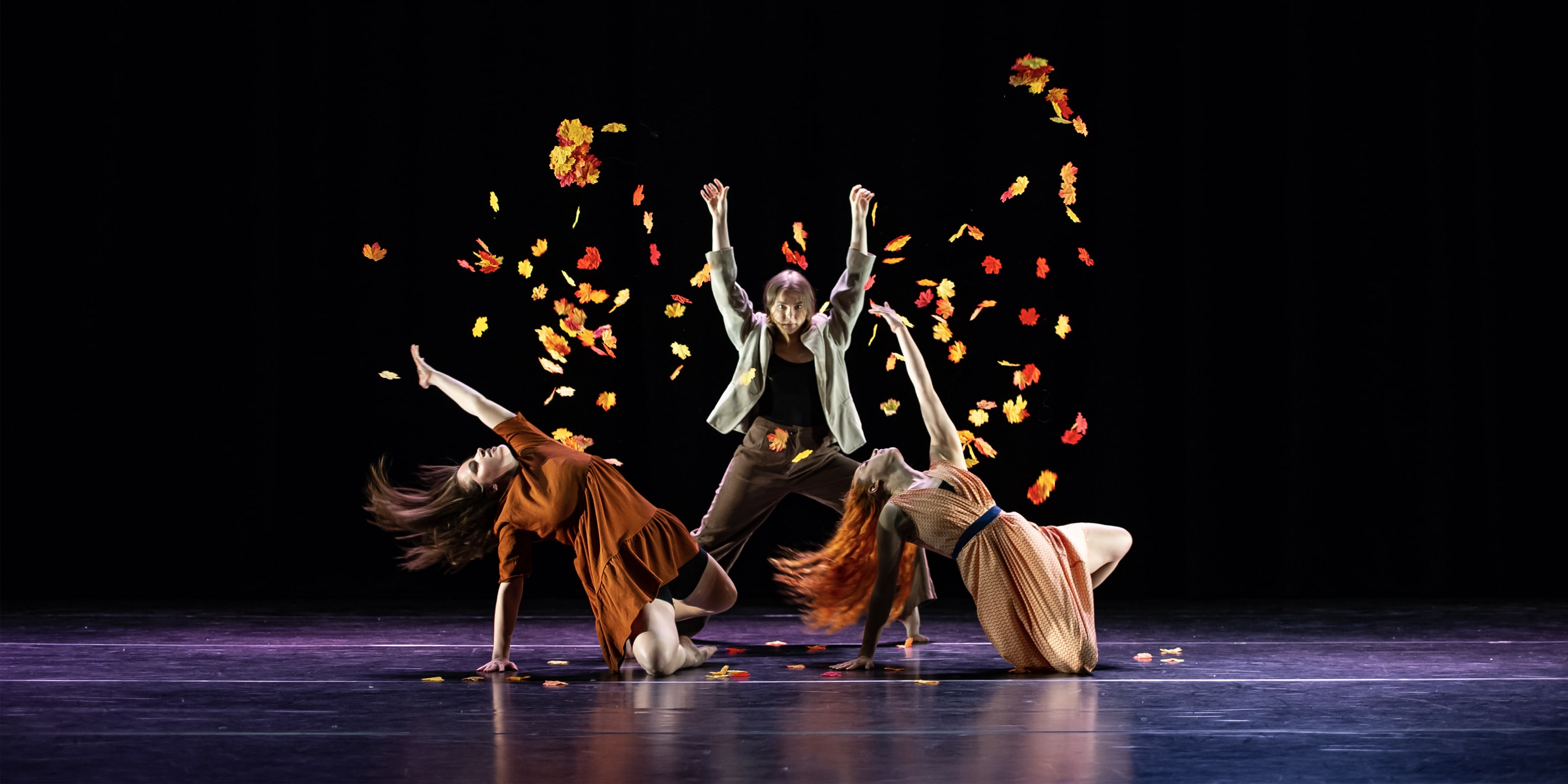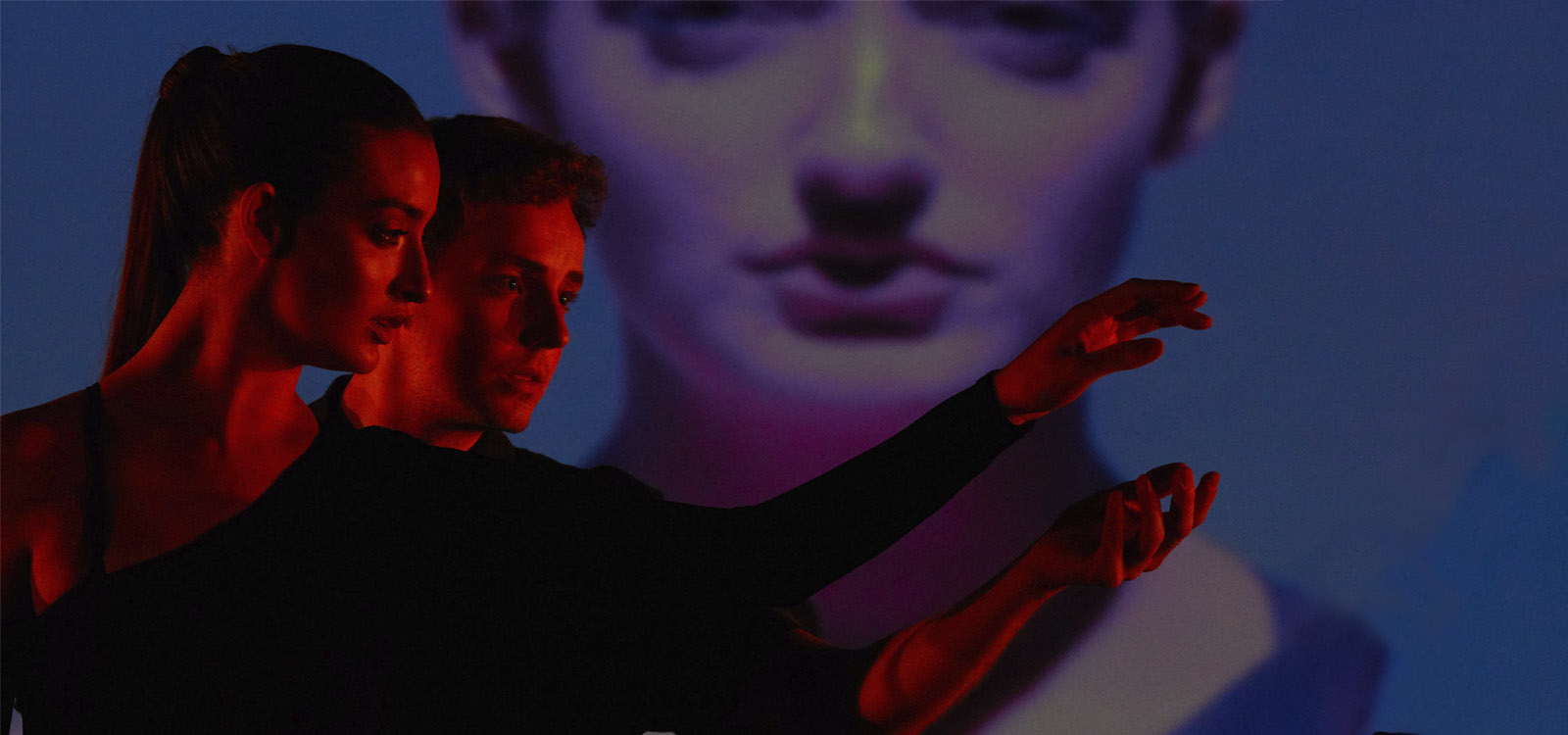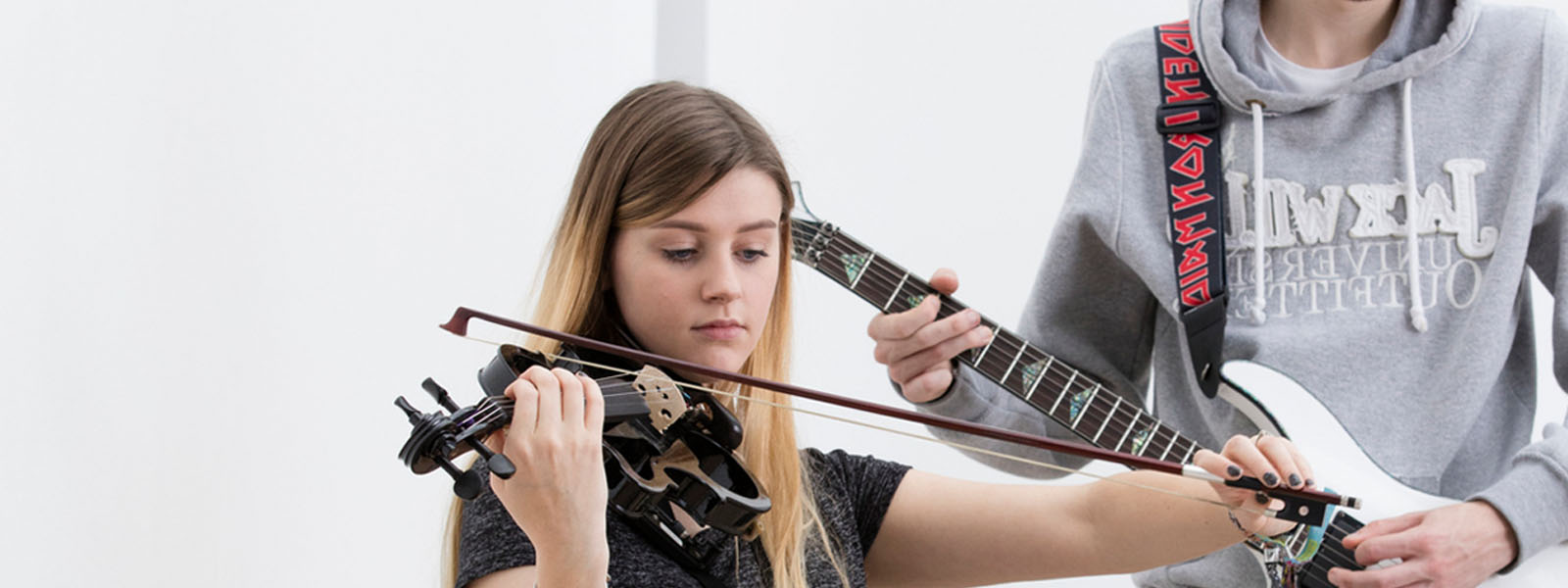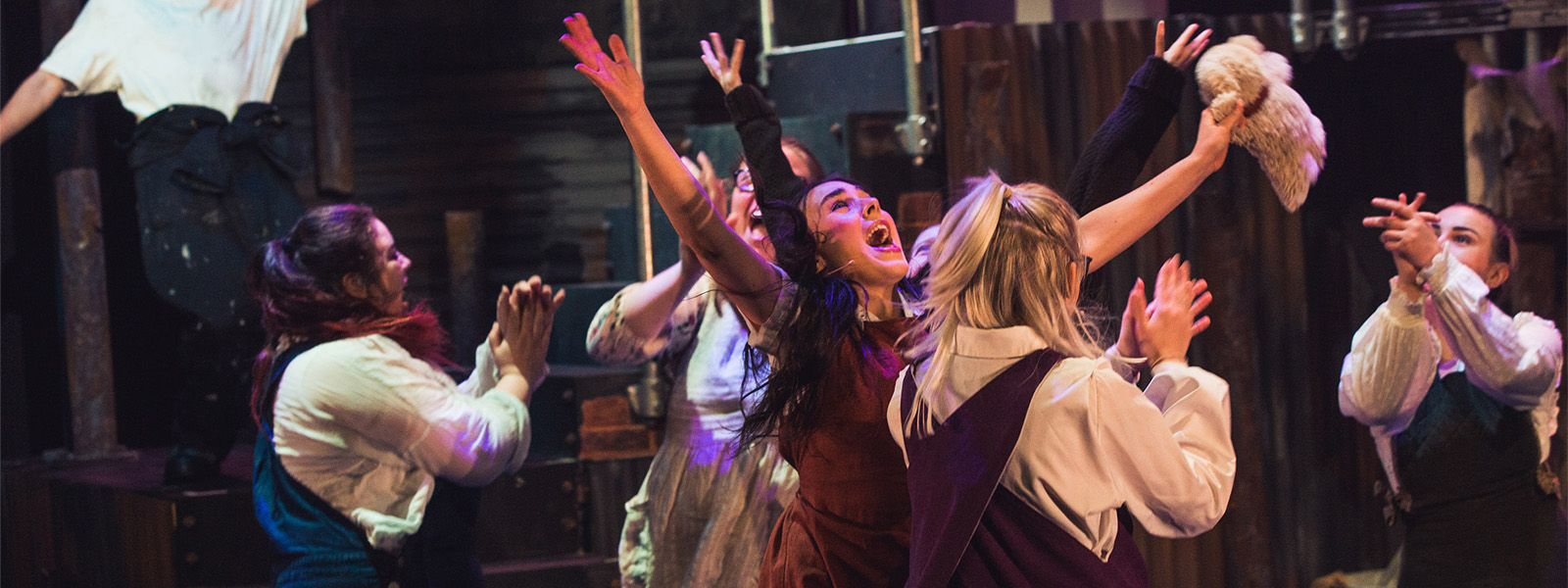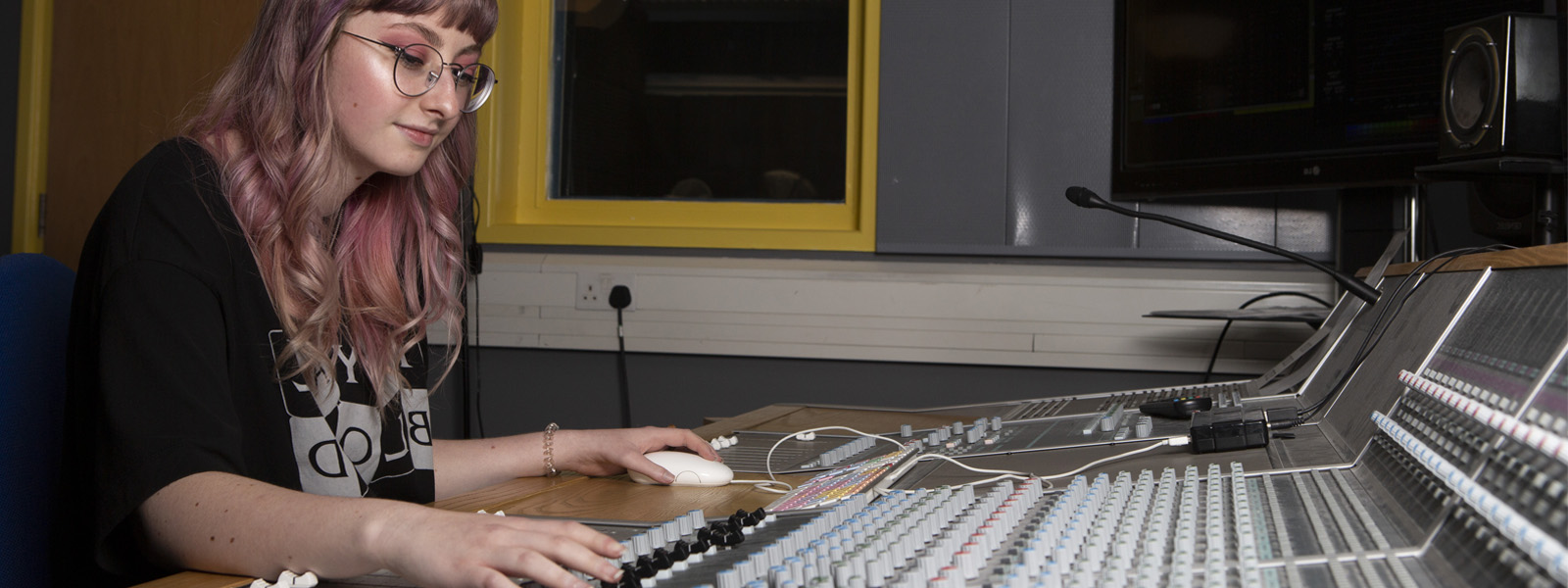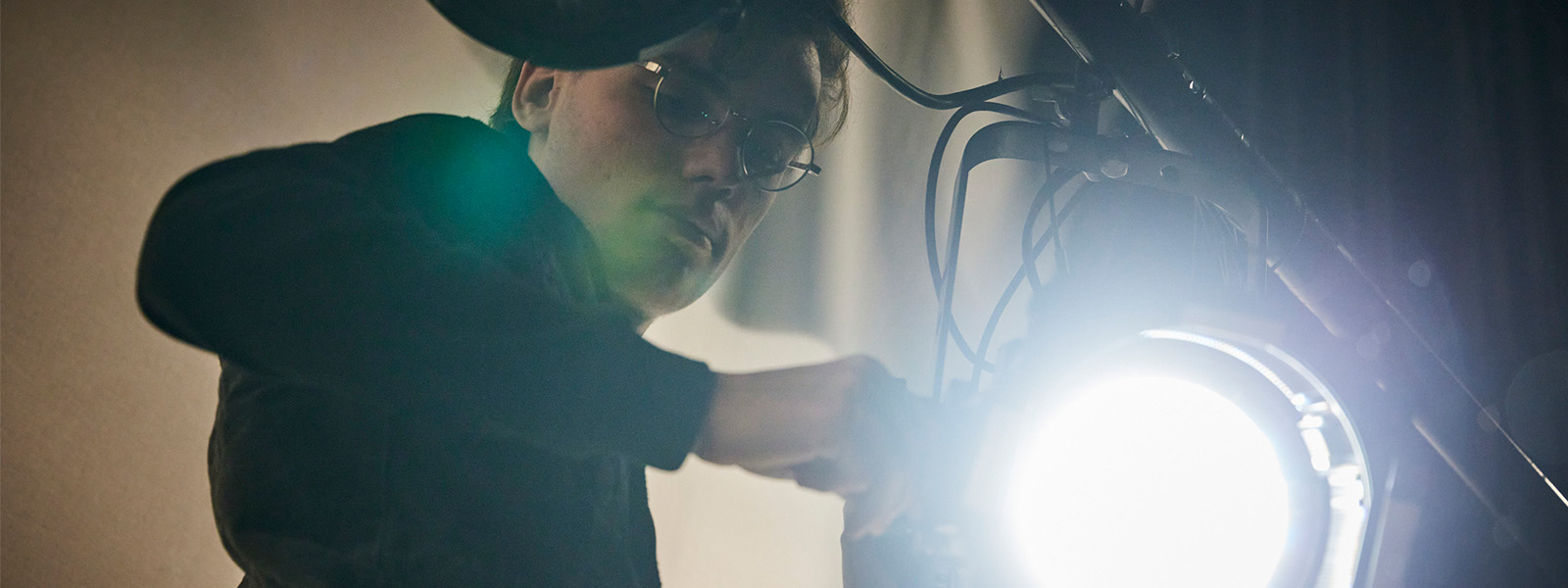Module Overview
This module teaches students how to act in the styles of naturalism and realism. It aims to refine performance technique, and instil solid, manageable principles about the craft of acting. Seen from the actor/character point of view, it is about playing actions and pursuing objectives. The module examines various strategies and approaches principally derived from the work of Stanislavski and Laban. Using these practitioners, as well as studying the postmodern characterisation of Churchill and Crimp, the first two thirds of the module (8 weeks) concentrate on introducing acting and scene study techniques. In the final four weeks of teaching, workshops will become weekly work-in-progress sessions where students will showcase their scenes and critique the work of their peers in a ‘masterclass’/ rehearsal format. The module concludes with a public performance of the scene plus a post-show viva.
There is also a directing dimension to the module, as scenes have to be interpreted and staged; scene and play analysis is also fundamental to the work of the director. No actor (or director) can begin to act (or direct) successfully without knowing how best to mine the text, wherein most clues are to be found about how to perform the scene, the character and the play.
Module Overview
Why have detective narratives proved so enduringly popular? This module will interrogate the iconic figure of the private eye in American popular culture, through the fiction and film of the twentieth and twenty-first century.
Module Overview
Acknowledging what happens in process and production are is as important, if not more important, than what happens with a final artistic product. This module offers you invaluable opportunities to develop a detailed understanding of the arts as an ecosystem in relation to the wider world. You'll be introduced to the organisational infrastructure of the creative sector, enhancing your core employability skills for life after graduation, and equipping you for a career in the arts.
You will learn directly from industry professionals working in a variety of creative contexts who we invite to speak to you in a series of talks and presentations; you can speak to them, ask questions, and develop your professional network. You will also learn though lectures, discussion, group and individual working, and via research tasks designed to provide you with real-world guidance for working in creative and cultural industries. You'll also be encouraged to keep abreast of government policy and issues such as audience accessibility and diversity within the arts, and ask how the current political climate shapes this generation of arts organisations, makers, producers and companies.
Module Overview
A mix of theory and practical work, this module explores a wide range of popular performance forms and their continued cultural impact on both society and contemporary performance practice. The explorations include - but are not limited to - traditional and contemporary cabaret forms, music hall and vaudeville, parody songs, satirical news and sketches, drag acts, queer performances, slam poetry, and more. In seminars, students interrogate and critically reflect on the historical and socio-political contexts that have influenced popular performance from the 18th century to the present day. Alongside this, students also engage in weekly practical workshops where they experiment with various modes of performance and deploy their creativity and imagination to generate original material for the final presentation of work. The module culminates with a public cabaret show devised and performed by the students.
Module Overview
This module offers an opportunity to engage with American literature (in a variety of forms) and some of its socio-historical, political and ideological contexts from the late 1990s to the present day. We will explore aspects of canon-formation in American fiction, and study a selection of texts by both new and established writers, in some cases at the point where they are first published in paperback. We will take a thematic approach, locating American cultural production in regional, national and global contexts, with a particular emphasis on writing in the 21st century. There are no pre-requisites for this module.
Module Overview
This module offers invaluable insight into the skills and techniques required to direct theatre, and offers opportunities to put this specialised knowledge into practice in relation to a variety of play texts. Students are introduced to various practical processes and methodologies, including researching a script and articulating a vision, guiding improvisations and blocking, to casting, running a rehearsal room, and developing performance material. For assessment, students direct their peers in a scene of their choice, following a period of their own script preparation. By studying the artistic and aesthetic concerns of the director, students will come to understand and contextualise what it means to direct theatre in the twenty-first century.
Module Overview
With the assistance of a supervisor, students will work in groups to propose, plan and perform an ambitious, hour-long performance as a final Showcase Project that uses the skills, techniques, knowledge and creative influences that they have accumulated over the course of their degree.
Student may propose a show of any type, from existing plays to devised work, from site-based to adaptations. They may develop anything from intermedial work to performance-installation, physical theatre and/or live art. All performances will have the opportunity to be shown in the Lincoln Arts Centre as part of its professional programme of staged work.
Module Overview
Monsters and attics, desolate landscapes, imprisonment and pursuit: the gothic genre emerged in the late eighteenth century to depict our darkest fears and desires. Termed 'the literature of nightmare', gothic departs from a realistic mode of representation and employs a powerful means of symbolic expression. Students are given the opportunity to investigate ways in which the genre has explored psychological and political anxieties, and themes of sexual and social transgression. We consider literary texts from the eighteenth to the twenty-first centuries, including literature and film, and we give attention to sub-genres such as ‘female gothic’, ‘imperial gothic’ and ‘children’s gothic’.
Module Overview
This module explores what it meant to grow up and to grow old in the nineteenth century, through often contradictory accounts of experiencing age categories from childhood to old age.
Students will have the opportunity to examine various constructions of ageing, to reflect on age as a crucial facet of identity. This module considers age as a lens to explore the nineteenth century as a transitional period of growth and expansion as well as decay and decline, through a range of Romantic and Victorian texts.
Module Overview
In this module students have the opportunity to research in depth an author or topic of their choosing. Students are expected to commence research over the summer between Levels 2 and 3 and, on their return, have regular, one-to-one meetings with a tutor who is a research specialist in that field. The supervisor offers advice and direction, but primarily this module encourages independent research leading to the production of a 10,000 word dissertation.
Module Overview
This module is designed to examine how terms such as Ireland and Irishness have been constructed and questioned across the last century, a period of immense and often turbulent historical and social change. It aims to explore the representation of place, the nature of nationalism, the changing family unit, gender roles and Ireland's relationship to globalization in Irish poetry, drama and fiction.
Module Overview
This module responds to the recent interest in the representation of lives within literary studies. It discusses a range of life representations (including biography, autobiography, letters, confessions, memoirs, and poems) from the Romantic period to the contemporary moment. Students may consider the origins of autobiography, address Modernist experiments with life representations, and discuss twentieth-century and contemporary innovations, including disability narratives and cross-cultural autobiographies. Themes such as the construction of selfhood, conceptions of memory, the relational self, and the ethics of life writing are addressed.
Module Overview
The first principle of ecological thinking is that it is not only human beings that are meaningful, and that we are neither so separate from, nor so dominant over, the non-human as we tend to think. In this module students can explore what difference it makes to read literature from this perspective. We study literature as part of our complex interaction with our environment, and, perhaps sometimes, as a uniquely valuable one. Students can read texts from ancient Greek pastoral to contemporary dystopias, and from the poet John Clare to the woodland historian Oliver Rackham.
Module Overview
This module explores the representation of East-West contact in Middle English romances, with a particular emphasis on the interlacement of racial and ethnic otherness and on different types of violence, from martial exploits and religious coercion to rape and cannibalism.
Students will have the chance to experience the breadth of the romance genre—its many thematic and topical branches, and its many sub-genres and their respective conventions—as well as insight to the actual act of crusading, and the cultural and social crises that arose from this act.
Module Overview
This module explores literature by nineteenth-century women writers through the Romantic and Victorian eras up to the suffrage campaigns. We explore how women negotiated cultural ideals of femininity and the challenges of authorship to produce writings across forms including novel, short story, poetry, play, and in a range of genres such as social realism, gothic, fairy tale and life writing. We consider how these works engage with contemporaneous social debates, especially about women’s social position. Authors addressed include Jane Austen, Anne Bronte, Dorothy Wordsworth, Christina Rossetti, Mary Molesworth, Amy Levy and Elizabeth Robins. These works are interpreted in relation to their cultural context and in light of recent critical debates.
Module Overview
This module combines both practice and study, in which students can work either independently or collaboratively to design and realise a production for the stage or an unconventional performance space.
The module requires students to undertake the roles within the creative team for a production, including the production designer, set designer, lighting designer, sound designer, costume designer, prop designer, video designer and more.
The module aims to examine the skills and resources available for each of these roles and allow students to explore the avenue that most suits them.
Students can opt to work solo or form groups suited to the area of interest applicable to each students' interests and CPD plan. Students can work independently or in groups to propose, plan and design an ambitious theoretical production that utilises the experience gained over their three years on the programme. Embracing a broad spectrum of theatrical design methods to produce a visualised representation and presentation of a theoretical production.
Students may form groups and work collaboratively to fulfil all the design elements of a production, including (but not limited to) set designer, lighting designer, sound designer, AV and costume designer. Alternatively, students may choose to work independently and design all scenographic elements themselves.
A preliminary seminar aims to introduce the Module and its processes, offering design briefs to be allocated to each group. A supervisor can be assigned to each group to meet with them at key points over the Semester. Supervisors may advise students on the mode of work each group is producing, and give feedback on their Draft Proposal.
Groups can then receive formal supervisions during the Semester, including work in progress stages prior to their final assessment and presentation.
The module is designed to simulate a real-world design scenario, requiring students to develop the skills and knowledge necessary to develop concepts, work collaboratively, and produce quality design documentation.
Module Overview
This 30-credit module puts you at the heart of a professional theatre experience, providing the opportunity to rehearse and perform for public audiences. Once you have successfully auditioned for this module, you will begin an intensive development and rehearsal process for the production, before performing a short run for Lincoln Arts Centre. Supported by the Lincoln Arts Centre’s staff, and directed by a professional practitioner from the Drama team, the production will provide invaluable professional experience from audition to final performance.
Module Overview
This module considers the genre of modern science fiction and its evolution into one of today’s most popular narrative genres. Analysing a variety of forms – novel, short story, drama, graphic novel and film – students will have the opportunity to examine the socio-historical contexts of some of the most influential narratives of this period.
This ranges from the emergence of “scientific romance” in the late nineteenth century, to late twentieth-century forms like cyberpunk and radical fantasy; from the problems of defining “genre fictions” and privileging science fiction over fantasy, to our enduring fascination with alternate histories, non-human agents (robots, animals, genetic hybrids, the environment), ecocatastrophe and post-apocalypse.
Module Overview
Scriptwriting for Stage and Screen develops students' skills in scriptwriting for film, television and theatre. Through workshop exercises, group feedback, and seminar-based discussion students will study a variety of writing practices, developing the skills to create character, dialogue, and plot for both the stage and the screen. In addition to writing their own script, students will also attain a realistic understanding of theatre, film and television industries, including how to present their work within production contexts.
Module Overview
This module concentrates on the works of Geoffrey Chaucer, with a particular emphasis on The Canterbury Tales, perhaps Chaucer’s most famous work. Students will have the opportunity to examine the General Prologue and a variety of tales in relation to their historical context and literary antecedents, and, throughout, specific attention will be given to questions of genre (ranging from fable and epic to satire and romance), literary authority, narrative construction, and medieval aesthetics.
Module Overview
This module provides an opportunity for students to study the works of Shakespeare in detail. The dissemination, influence, and adaptation of Shakespeare is unrivalled, and without an understanding of the conventions that the works dissolved and those that they initiated, a full appreciation of the canon of English literature is inevitably lessened.
This modules challenges Shakespeare’s status as an icon of tradition and elitism by reading the texts in the light of recent developments in critical theory, and by locating them in the culture of their age. Students will be invited to examine the ways in which different theoretical approaches might have a bearing upon the interpretation of Shakespeare, they will also be conversant with the religious climate of the late sixteenth and early seventeenth centuries, the conditions of performance and play-going in Shakespeare’s theatre, and the significant cultural and historical events of the period.
Module Overview
This module allows students to study the works of the Bard in detail, and to read them in the light of critical theory and literary history. Shakespeare’s plays are a cornerstone of the canon of English literature, but in wider culture they are often treated as inflexible repositories of ‘truth’ and ‘human nature’.
This module will resist such approaches, and concentrate instead upon the ways in which the plays address the concerns of their day, as well as how they have been made to signify in other eras. Students can develop an understanding of how Shakespeare’s work dealt with early modern dramatic conventions, politics, and thought; how it addressed questions of history, religion, and race; and how it shaped the culture within which it was written. This module considers Shakespeare’s mature comedies, histories, and tragedies.
Module Overview
This module allows students to pursue an in-depth study of one author’s literary or dramatic works. The author of choice varies from year to year according to academics’ current research interests, but potential authors may include writers of fiction and/or poetry such as Angela Carter, Charlotte Bronte, Iain Banks, Thomas Pynchon, M.R.James, Jane Austen and Sylvia Plath; and dramatists such as Caryl Churchill, Thomas Middleton, Aphra Behn, Ben Johnson and debbie tucker green. Students will explore the writer’s oeuvre in terms of themes, style, and engagement with form and genre traditions, and with contemporary cultural debates. We also address practicalities of authorship such as the role of editors, publishing/performance formats, and different readerships/audiences. Students will also consider the writer’s legacies including the ‘afterlife’ of their works in adaptation. As well as studying texts, students will engage with conceptual debates about the role of the author : is attention to the author’s life an outmoded and over-deterministic approach to the study of a text? or a necessary part of contextualisation? As we scrutinise the figure of the author in biography, literary societies, literary tourism and popular culture, we ask : what purposes does the ‘author’ as a cultural construction serve ? and does this have anything to do with reading?
Module Overview
This module allows students to pursue an in-depth study of one author’s literary or dramatic works. The author of choice varies from year to year according to academics’ current research interests, but potential authors may include writers of fiction and/or poetry such as Angela Carter, Charlotte Bronte, Iain Banks, Thomas Pynchon, M.R.James, Jane Austen and Sylvia Plath; and dramatists such as Caryl Churchill, Thomas Middleton, Aphra Behn, Ben Johnson and debbie tucker green. Students will explore the writer’s oeuvre in terms of themes, style, and engagement with form and genre traditions, and with contemporary cultural debates. We also address practicalities of authorship such as the role of editors, publishing/performance formats, and different readerships/audiences. Students will also consider the writer’s legacies including the ‘afterlife’ of their works in adaptation. As well as studying texts, students will engage with conceptual debates about the role of the author : is attention to the author’s life an outmoded and over-deterministic approach to the study of a text? or a necessary part of contextualisation? As we scrutinise the figure of the author in biography, literary societies, literary tourism and popular culture, we ask : what purposes does the ‘author’ as a cultural construction serve ? and does this have anything to do with reading?
Module Overview
This module explores how childhood is constructed in a wide range of literary texts – texts by adults for adults, by adults for children, and by children themselves. Underpinning the module is the notion of ‘childhood’ as a cultural construct into which writers invest various, even contradictory, meanings. Students have the opportunity to explore texts by adults who idealise or demonise the child to suit their personal and philosophical agendas. Students may then analyse the mixture of didactic and therapeutic agendas in enduring genres of children’s literature such as the fairytale, adventure story and cautionary tale. Finally, we turn to children as authors in a study of juvenilia.
Module Overview
What part does theatre play in the lives of children today? How do we make such theatre relevant, accessible, and alive in a world dominated by screen-based interaction? What is the most appropriate setting and subject matter to engage children in a theatrical experience?
Students will form small groups and devise short performances designed to tour to Primary Schools in the City of Lincoln. The tour will usually play in a different Primary School every day for one working week, with audience sizes ranging from 80 - 300 children. The tour will replicate a professional touring model, accompanied by a dedicated Technician with a full complement of audio, visual and lighting equipment. The audience will usually comprise of 4 - 7 year old children, their teachers and teaching or learning assistants. Students will require DBS Checks to tour, and these will be provided by the Lincoln School of Creative Arts.
Module Overview
This module aims to explore new thematic trends, stylistic innovations and cultural developments in post-millennial British fiction, including a focus on globalising processes, transnational migration and digital technology.
The module also addresses the development (and rethinking of the concepts) of gender and class in literature of the period and account for the continuing importance of the literary form in an age of digital publishing.

